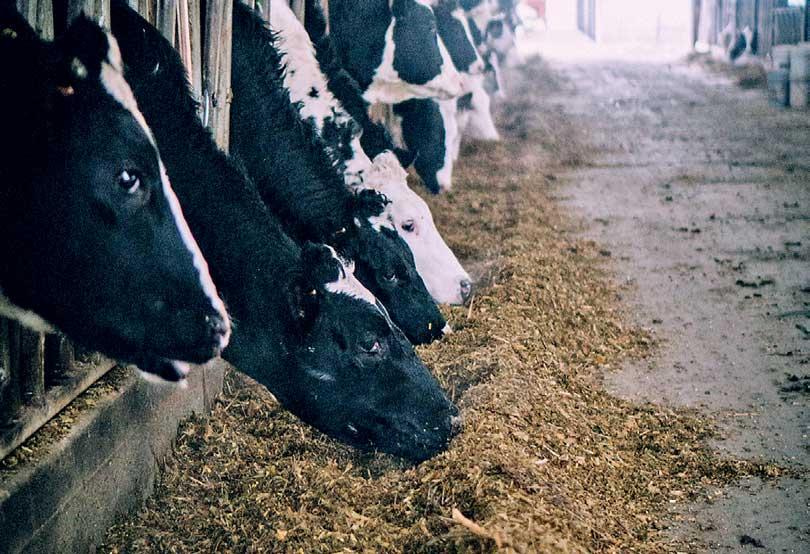Reply To:
Name - Reply Comment

 While the ethical and health arguments of eating animal products are much debated, there is a third consideration that is often overlooked and that’s the impact of animal agriculture on the environment. This was highlighted in a recent analysis by Faunalytics on the willingness of consumers in Australia to change their dietary habits to eating less meat. Researchers found that only a small number of those surveyed (15%) believed that meat production has a negative impact on the environment and would be willing to change their diets.
While the ethical and health arguments of eating animal products are much debated, there is a third consideration that is often overlooked and that’s the impact of animal agriculture on the environment. This was highlighted in a recent analysis by Faunalytics on the willingness of consumers in Australia to change their dietary habits to eating less meat. Researchers found that only a small number of those surveyed (15%) believed that meat production has a negative impact on the environment and would be willing to change their diets.
While the participants were surveyed only within Australia, this belief exists all across the world. This is largely in part due to the negative environmental effects of animal agriculture being “out of sight and out of mind” from the everyday consumer.
Raising animals for food requires massive amounts of land, water, food and energy. With a predicted increase in the world’s population from 7.3 billion to an expected to 9.7 billion in 2050 (UN), the negative effects on the environment are only going to increase as demand for animal products rises.
Green House Gases (GHG)
While the percentage of GHG from animal agriculture can vary between studies, the Food and Agriculture Organisation (FAO) of the UN advised that the animal agriculture sector—which includes the production of feed crops, the manufacturing of fertiliser, and the shipment of meat, eggs, and milk—is responsible for 14.5% of all anthropogenic greenhouse gases.
This breaks down to about 44 per cent of livestock emissions in the form of methane (CH4), Nitrous Oxide (N2O, 29 per cent) and Carbon Dioxide (CO2, 27 per cent) which in turn, cause global warming.
Waste
Waste, manure, dung, whatever you call it, it’s a massive problem. Generally, large-scale farms dispose of animal waste by using it as fertiliser, storing it in underground pits, open-air lagoons or sending it off to other farms.
But sometimes, it doesn’t stay where it should. Animal waste “run-off” can make its way into public waterways. Manure can contain a potent mix of nitrogen and phosphorus, pathogens such as E.coli, growth hormones, antibiotics and chemicals used as additives to the manure or to clean equipment. It not only pollutes the water but releases particles into the air, causing pollution and health problems.
This also leads to ...ocean dead zones
A new study published in the journal Science (Declining oxygen in the global ocean and coastal waters in 2018) found that areas devoid of oxygen in the open ocean have soared in the past 50 years. Scientists have been warning us for years that this could lead to the mass extinctions of sea creatures that are unable to survive in these zones which impacts not only fishermen but the millions of people that depend on the sea for their livelihoods.
Where’s all the water gone?
An estimated 70 billion animals are raised and killed each year on earth and they all need large amounts of water to stay alive. According to UNESCO, out of the 93% of total global water consumption, the largest sector using freshwater is agriculture—with nearly 50% of all water use being taken up by livestock.
In a world where freshwater is becoming increasingly sparse due to drought, it’s argued that using water to grow animals for food rather than using freshwater directly to grow crops is as an inefficient use of a precious resource.
The Water Footprint Network uses the following example “When we look at the water requirements for protein, it has been found that the water footprint per gram of protein for milk, eggs and chicken meat is about 1.5 times larger than for pulses”.
Desertification
The Princeton University Dictionary describes the desertification as “The process of fertile land transforming into desert typically as a result of deforestation, drought, or improper/inappropriate agriculture”. While the causes of desertification are complex and varied, three of the main issues are overgrazing, unsustainable agriculture techniques and deforestation. With the loss of fertile land, along comes the potential for higher food prices, lack of water availability, violent conflicts over land, migration and increased poverty.
What now?
Sri Lanka’s environmental impact from animal agriculture is relatively small at the moment, but as a country already vulnerable to the effects of climate change, unsustainable farming practices could be disastrous.
Through sustainable development and a shift towards more environmentally- friendly based farming methods, hopefully, some of the worst problems can be avoided.
Consumers must also remember that there is a price for animal products and the cheaper the meat, dairy and eggs are, the bigger the price the environment (and the animals) will have to pay.